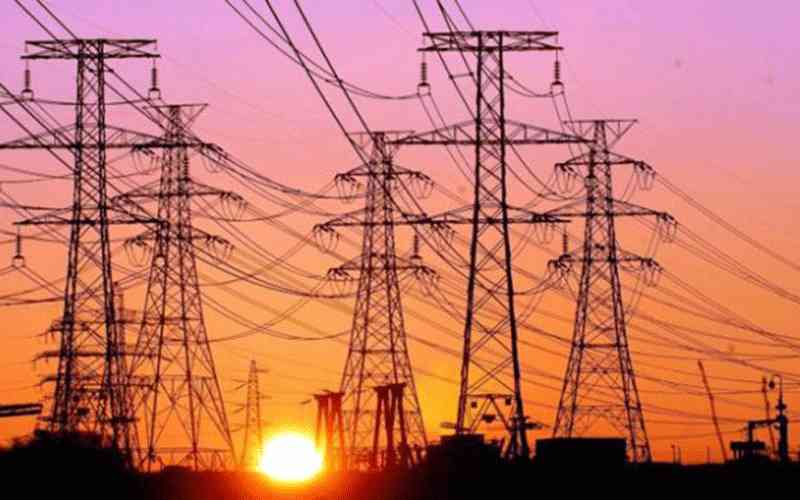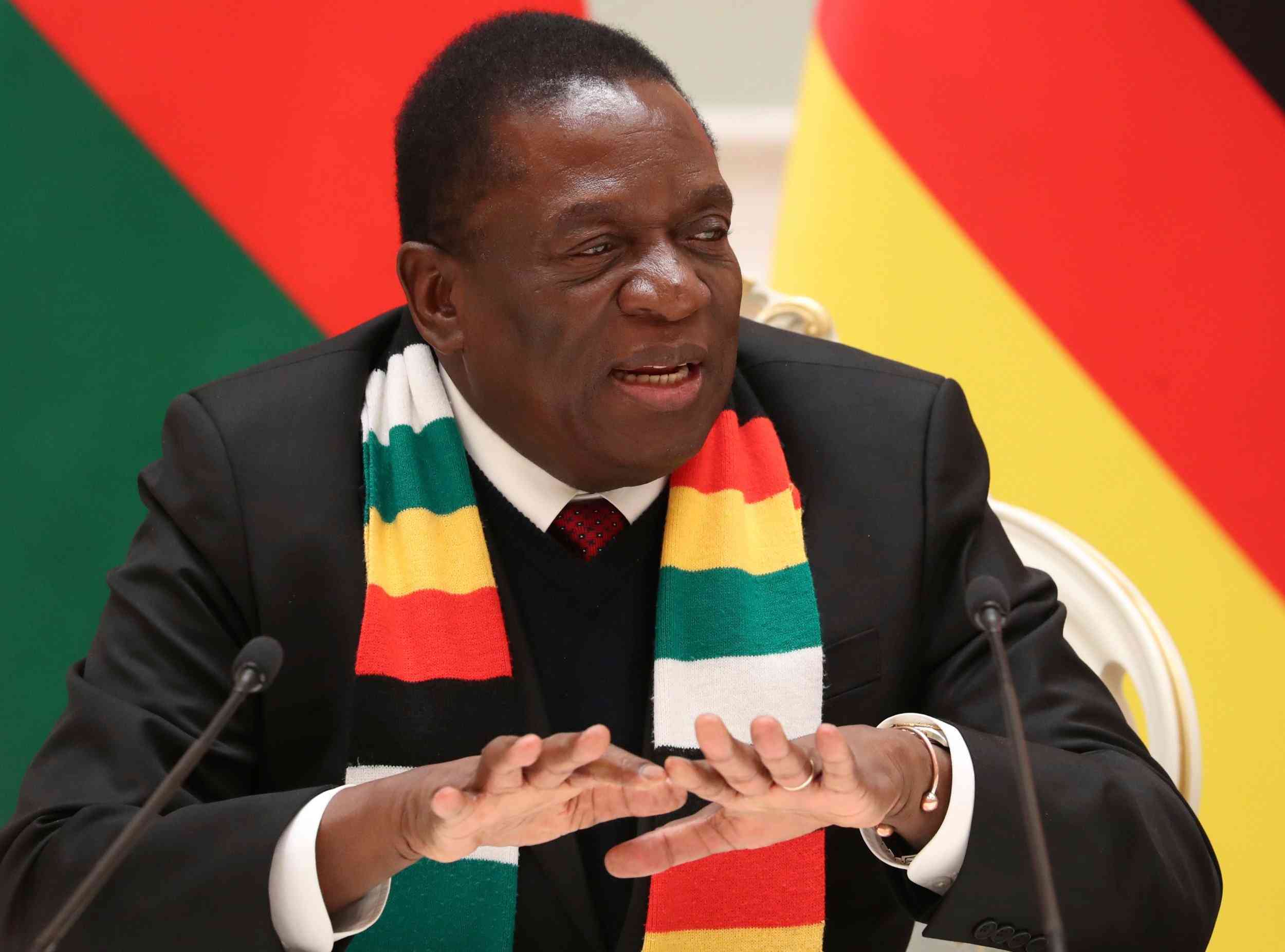
ROLLING power cuts sometimes running into 48 hours have forced many entrepreneurs to close shop, while those still operating are barely making any profits, an investigation by Truth Diggers, an investigation arm of Alpha Media Holdings revealed.
AMH are the publishers of The Standard, NewsDay, Zimbabwe Independent and Southern Eye. AMH also runs the online HStv.
A Truth Diggers investigation revealed that small enterprises, which form the backbone of Zimbabwe's now informalised economy, are bearing the brunt of the extended outages and deepening poverty.
Many business owners have been forced to close doors, as they cannot afford the big costs of using backup generators.
From local food vendors, to hair salons, businesses in every sector are experiencing major setbacks.
For many businesses in low-density suburbs, the electricity supply is reduced to a scant four hours, typically from midnight to 4am.
Zimbabwe has been experiencing long hours of power cuts due to depressed electricity generation capacity owing to several reasons, among them low water levels at Kariba Dam, which have affected power generation at Kariba North and South.
Kariba’s power plant has a total generation capacity of 1 050 MW.
- Severe power outages loom: Zesa
- ‘Power cuts choke mines, industry’
- South Africa's Eskom ramps up power cuts as plants break down
- ‘Power crisis could cost Zanu PF’
Keep Reading
As of Friday, Kariba was only generating 124 MW, according to the Zimbabwe Power Company (ZPC).
The majority of businesses have turned to diesel generators to meet their energy needs.
However, the high cost of operating these generators is significantly affecting their bottom lines.
Truth Diggers gathered that the price of electricity from diesel generators averages around 0.33 US dollars per kilowatt-hour (kWh), a figure far above the global average.
This rate, coupled with the steep cost of diesel, has created a challenging environment for businesses that rely on consistent power supply.
With diesel prices soaring, the cost of running generators has become astronomical, making it a struggle for many companies to stay afloat.
This publication gathered that butcheries have become some of the hardest-hit businesses.
The nature of the business, reliant on refrigeration, means that power cuts render most operations untenable.
“Every time there is a blackout, we lose hundreds of dollars’ worth of stock,” a butchery worker in Harare's Warren Park, preferring anonymity, said.
“Our freezers can only hold up for so long.
“We can't afford to keep generators running all day and night.
“As soon as the power cuts, the meat goes bad, and we have to throw it away.
“Customers are also feeling the pinch, because they don't trust that the meat is fresh anymore.”
He said the cost of running a generator to keep freezers running is too steep.
Truth Diggers also gathered that poultry farmers, particularly in low-density areas, are also feeling the pressure more acutely.
Farmers from Harare’s Kuwadzana and Glen View suburbs said they depended on electricity to run incubators for their chicks and freezers to store their stock.
With prolonged outages, many chickens die due to temperature fluctuations, resulting in significant financial losses.
Farmers who rely on freezing chicken to sell in bulk are also losing their stock, as the extended outages lead to frozen meat thawing and spoiling.
Some are even resorting to throwing away entire batches of chicken, which they cannot afford to do but have no other option.
The financial strain has driven many farmers out of business, and the loss of poultry production has deeply affected local markets that rely on the supply of affordable chicken.
Salons are also facing severe disruptions.
These businesses rely heavily on electricity to power dryers, clippers, and straighteners.
A hairdresser, Shyleen Magadzo said they were being forced to adjust to the unpredictable schedule by reducing their operating hours, but reducing their potential income.
“The power cuts are killing us,” Magadzo said.
“We used to be open until late at night, but now we are closing early because of the uncertainty.
“We don't know when the electricity will beback, so we can't commit to taking customers for long services like hair colour or treatments that require drying time.”
Other businesses like bars and entertainment venues also said they were not making profit due to the power cuts.
“This type of business thrives on creating a lively atmosphere with music, lights, and cold beverages, but with power cuts often lasting entire nights, the atmosphere becomes a shadow of its former self,” a DJ at a popular entertainment joint in the capital said..
“Business is slow. With no lights, no music, and warm beer, it's hard to keep customers entertained.
“People come to socialise, and without power, it's just a dark, quiet room.
You can’t rely on the generator for long hours, and even when we do run it, we’re running at a loss.”
Economists warned that the ongoing crisis is stifling entrepreneurship in a country already burdened with high inflation and a struggling economy.
The lack of reliable electricity also deters potential investors, further exacerbating the country’s economic woes.
Economist Gift Mugano said average small businesses generate just US$500 per month, barely enough to cover rent, operational costs, and employee wages.
“Load shedding is a menace, so some businesses are shutting down; some are losing sales due to long power cuts,” Mugano said.
“Small businesses don’t make a lot of money.
“If you look at the Unscop report by the World Bank, small businesses make an average of US$500 per month.
“That’s where their rentals are, their revenue and their survival is.
“So they do not have much space to accommodate this unnecessary space, which is load shedding expenses.
“Most of them find it difficult to run a business and end up closing due to power cuts.”.
Another economist Prosper Chitambara said there was need for the government to declare the energy crisis a state of emergency.
“The issue of power outages is the biggest threat to the viability and sustainability of businesses,” Chitambara said.
“If we are to bring relief to the industry, we need to work around the clock to address this challenge, especially investing in renewable energy.
“That is something that we need to harness and must be declared as a state of emergency so that we mobilise our resources towards that.
“Energy is the biggest enabler in terms of doing business in any economy.”
Public policy analyst Effie Ncube said the power cuts were bad for the already comatose economy.
“This also has an impact on consumers where prices increase, that as a result is also driving up inflation, which eats into the strength of the purchasing power of our currency contributing to a vicious cycle of higher prices,” Ncube said.
Last week, Zesa Holdings executive chairperson Sydney Gata said the Batoka Gorge Hydroelectric Project that is touted as the lasting solution to the power woes afflicting Zimbabwe and Zambia may never take off.
The multi-billion-dollar power plant to be constructed on the Zambezi — which flows through Zimbabwe and Zambia — has been on the cards since 1972.
Upon completion, the 2 400 megawatt (MW) power plant is expected to ameliorate power shortages affecting the two countries.
Gata also told the Zimbabwe-Zambia Energy Projects Summit held in Victoria Falls that the power utility envisaged ending loadsedding in 2030.
Zimbabwe’s energy deficit has also been worsened by frequent droughts that have resulted in low water levels at Kariba Dam, the country’s main source of electricity.
Lack of funding has also seen Zesa shutting down most of its coal-fired power stations and reduced the capacity of the Hwange Thermal Power Station.
Adoption of renewable energy sources has been slow due to lack of investment and a tariff structure that discourages independent power producers from embarking on projects.









